
lex-o-pedia
Safeguarding Your Deal: The Critical Role of Legal Diligence in Mergers and Acquisitions
Mergers and acquisitions (M&A) are complex transactions involving the combination or purchase of companies. This article explores the intricacies of M&A, differentiating mergers from acquisitions and examining the various types. It delves into the challenges associated with M&A, including cultural i

lex-o-pedia
Safeguarding Your Deal: The Critical Role of Legal Diligence in Mergers and Acquisitions
Mergers and acquisitions (M&A) are complex transactions involving the combination or purchase of companies. This article explores the intricacies of M&A, differentiating mergers from acquisitions and examining the various types. It delves into the challenges associated with M&A, including cultural i

lex-o-pedia
Modes of Discharge of Contract
The law of contract, fundamental to societal cooperation, governs relationships such as those between employers and employees, farmers and merchants, and students and educational institutions. According to Section 2(h) of the Indian Contract Act, 1872, a contract is an agreement enforceable by law.

lex-o-pedia
Junior Counsel
The journey from law school graduate to seasoned attorney often begins with the position of a junior counsel. Junior counsels manage and support the legal work of senior counsels, playing a crucial role in legal research, case preparation, and client interaction. Their responsibilities include condu
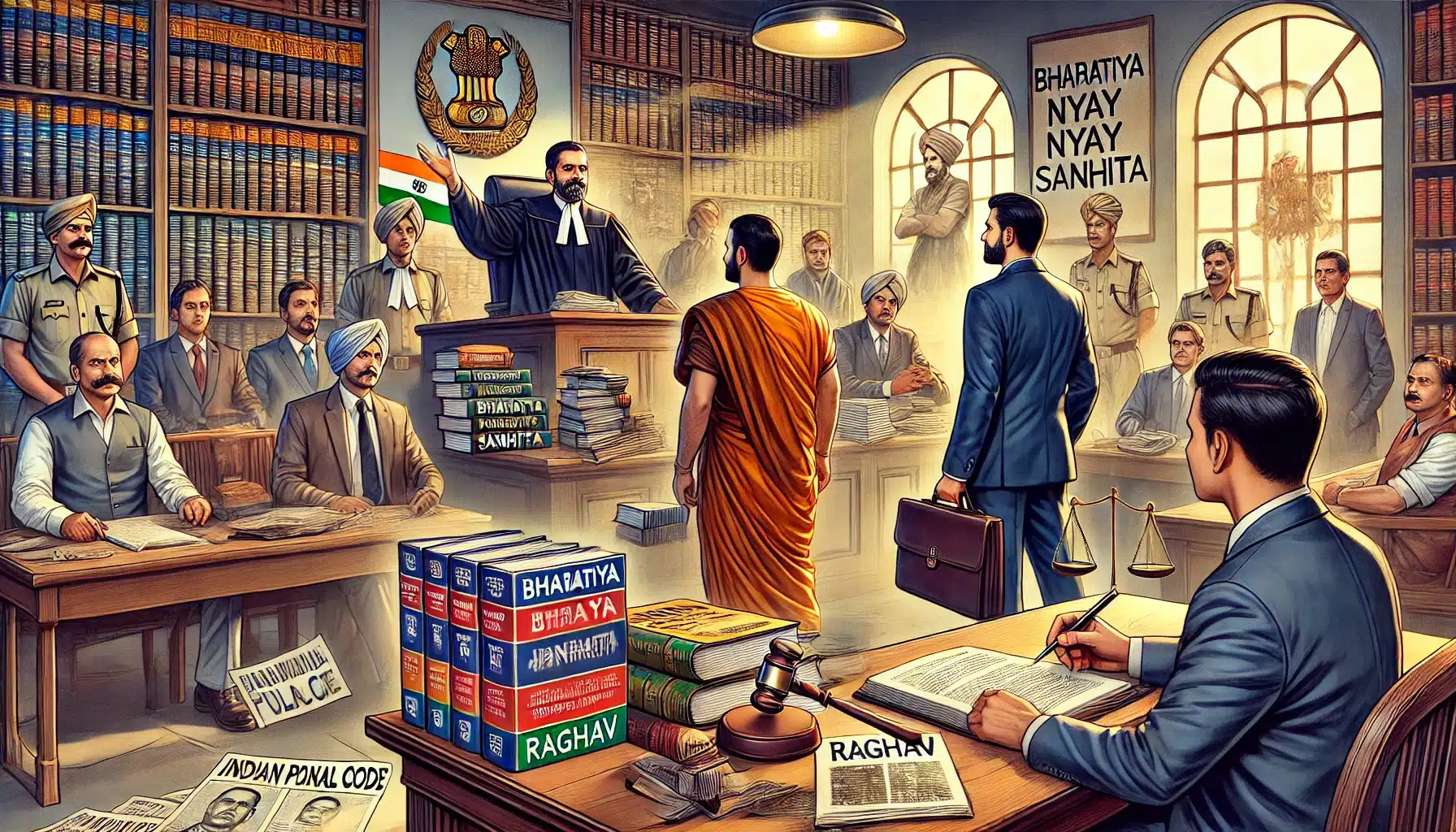
lex-o-pedia
Forgery
Forgery involves the fraudulent creation or alteration of documents with the intent to deceive or defraud. Under the Indian Penal Code (IPC) and its successor, the Bhartiya Nyaya Sanhita (BNS), forgery is defined as making false documents or records with intent to cause harm, support false claims, o
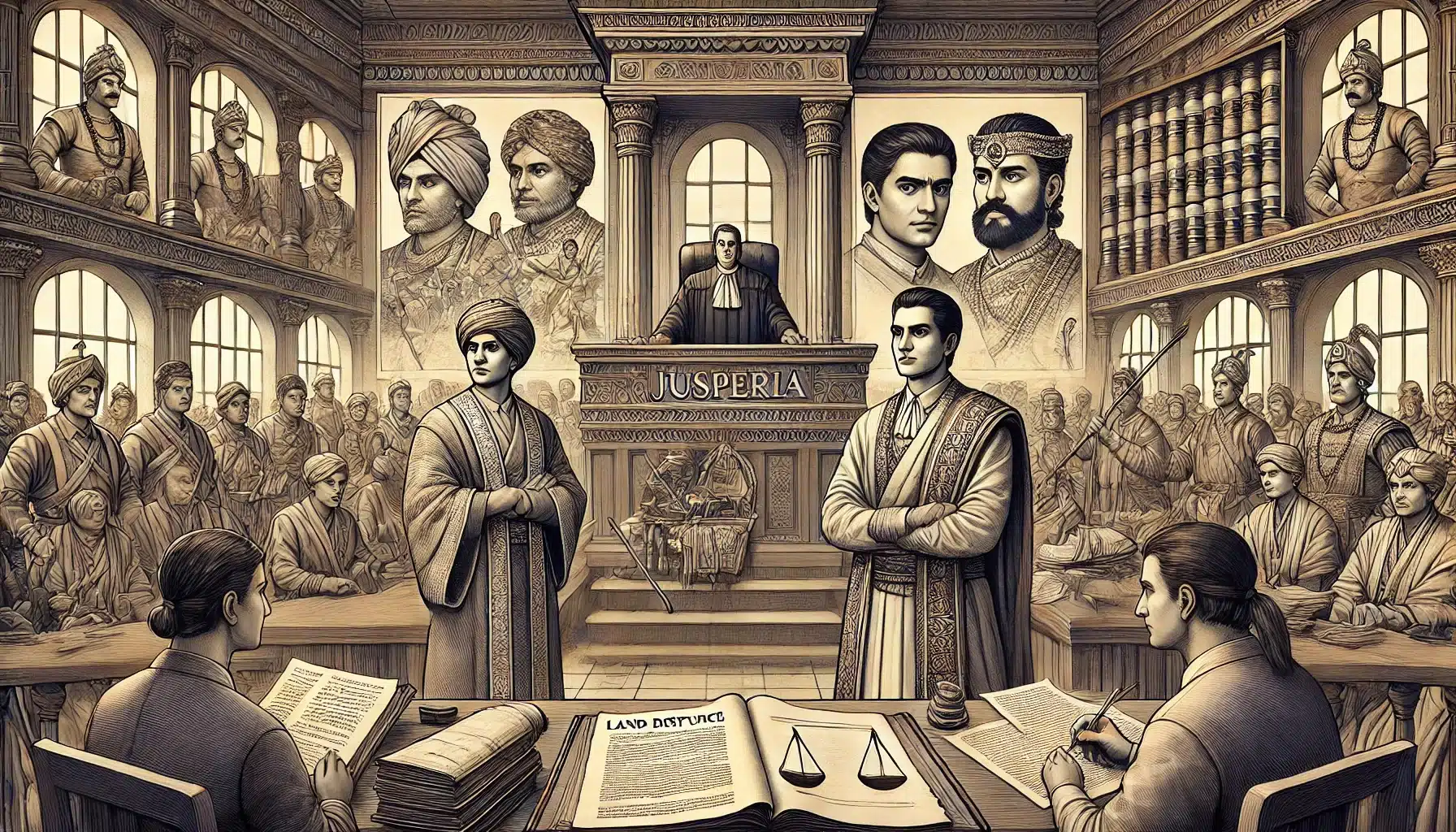
lex-o-pedia
Furnishing False Evidence under Indian Penal Code / Bhartiya Nyaya Sanhita
The Indian Penal Code (IPC) and the newly introduced Bhartiya Nyaya Sanhita (BNS) address the issue of furnishing false evidence comprehensively. Sections 191 to 195A of the IPC, and their corresponding provisions in the BNS, outline severe penalties for giving or fabricating false evidence. These s
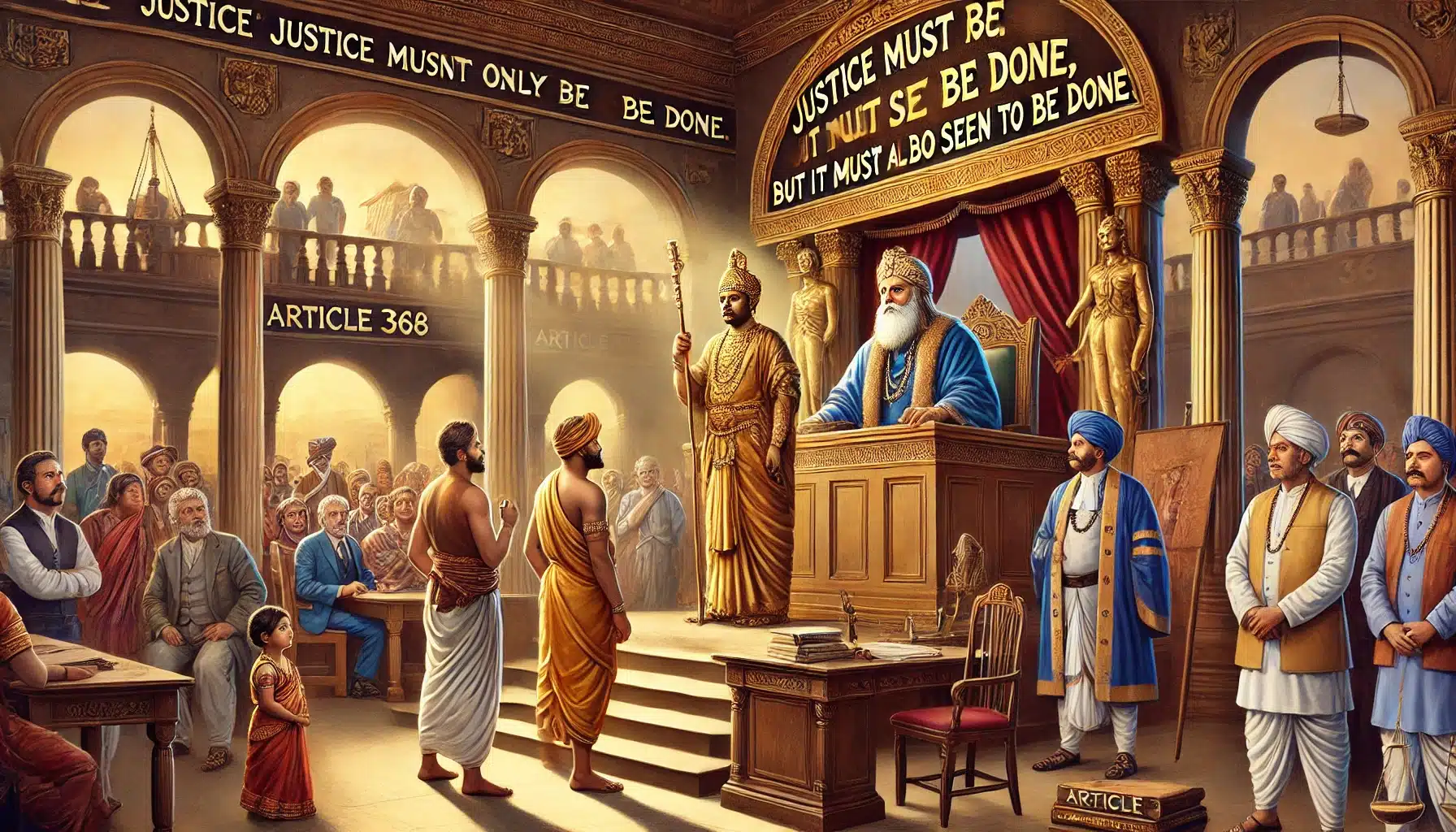
lex-o-pedia
Amendment under Article 368 of the Constitution of India
Amendment to the Indian Constitution: Article 368 is hereby amended to include provisions for ratification of amendments by a special majority of each House of Parliament and ratification by not less than one-half of the State Legislatures. Additionally, certain fundamental rights may be amended sub

lex-o-pedia
Offences relating to the Armed forces under Indian Penal Code/ Bharatiya Nyaya Sanhita
The Indian Penal Code (IPC) and the Bhartiya Nyaya Sanhita (BNS) include specific provisions to address offences committed by civilians against military personnel. Sections 131-140 of the IPC and Sections 157-166 of the BNS focus on maintaining discipline and order within the Armed Forces. These sec
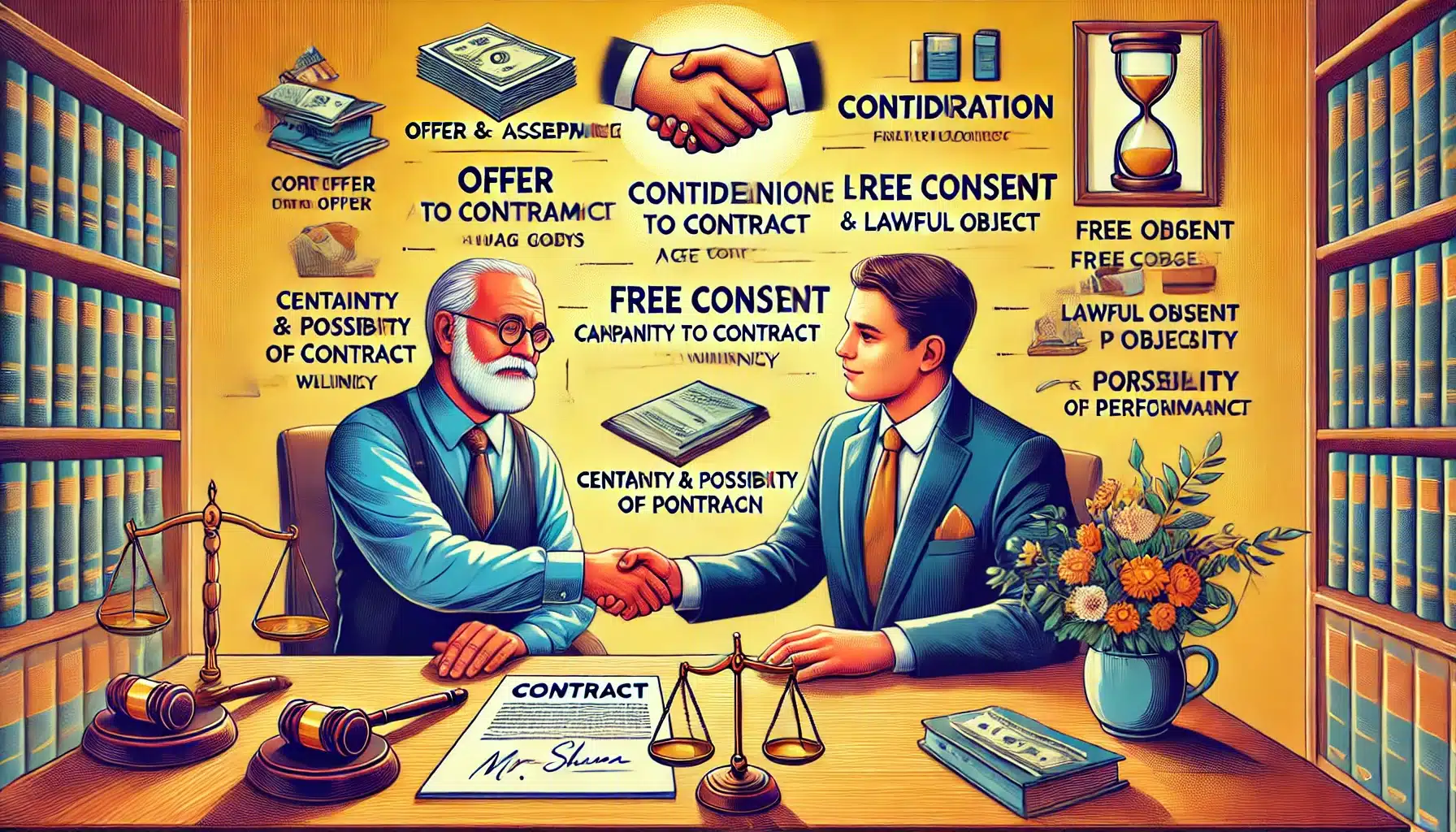
lex-o-pedia
Essential elements of a Contract
Essentials of a contract under the Indian Contract Act, 1872, ensure legal enforceability through key elements: offer and acceptance, consideration, capacity to contract, free consent, lawful object, and certainty of performance. These principles safeguard parties from unfair agreements and uphold t

lex-o-pedia
The WIPO Convention, 1967
The WIPO Convention, formally known as the “Convention Establishing the World Intellectual Property Organization,” is an international treaty administered by the World Intellectual Property Organization (WIPO). Adopted in 1967, it aims to promote and protect intellectual property (IP) rights worldwi
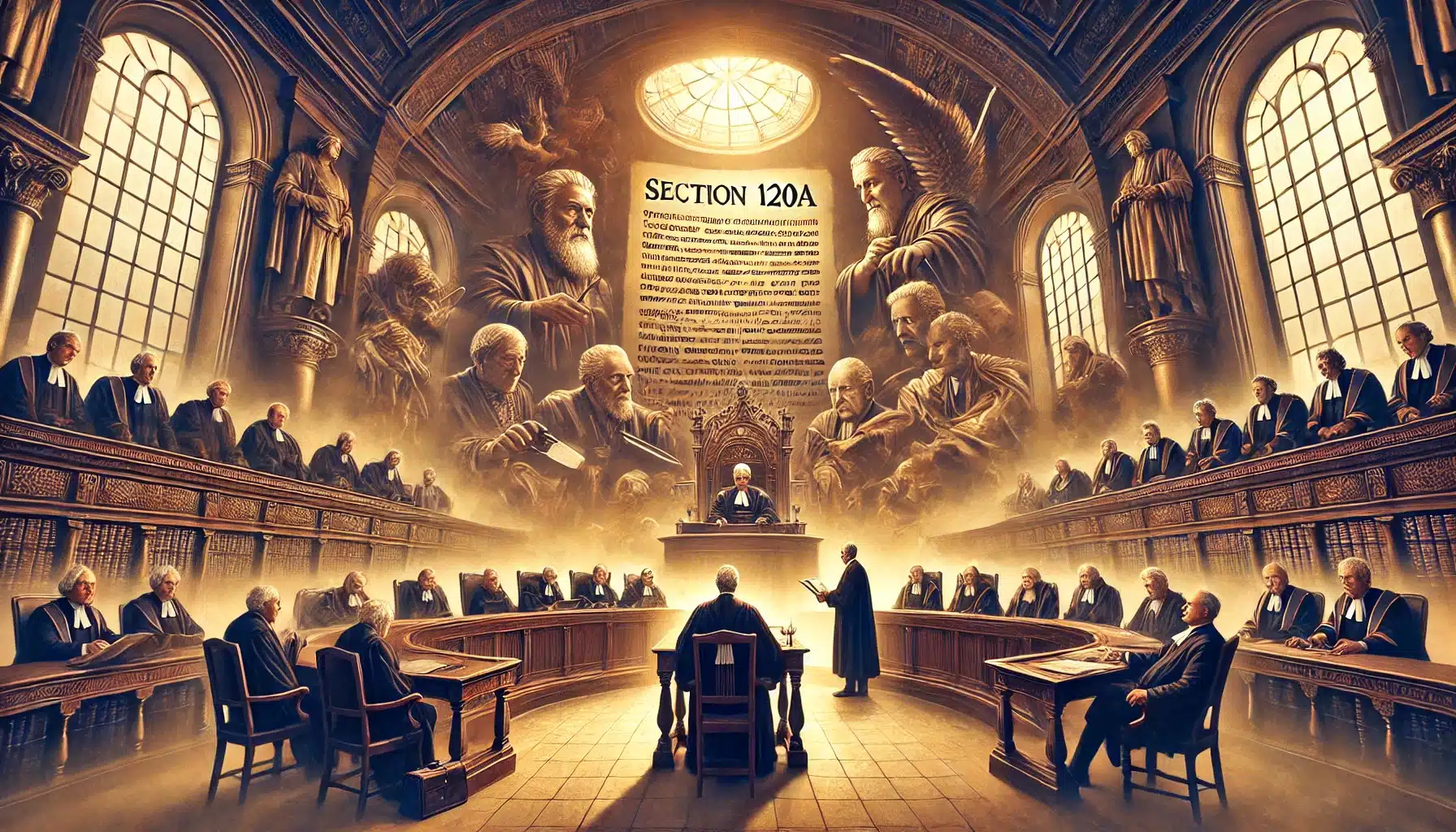
lex-o-pedia
What is Criminal Conspiracy?
The concept of criminal conspiracy dates back to the fourteenth century, involving agreements between individuals for illegal ends. It became part of the criminal law in 1868 and was further strengthened with Sections 120A and 120B of the Indian Penal Code. Modern laws continue to address and penali

lex-o-pedia
Doctrine of Basic Structure
The Doctrine of Basic Structure, established by the Indian Supreme Court, holds that certain fundamental principles of the Constitution are immutable and cannot be altered even by constitutional amendment. These principles include democracy, rule of law, judicial review, secularism, and federalism.

lex-o-pedia
Agreements in Restraint of Trade under Indian Contract Act, 1872
Under the Indian Contract Act, 1872, agreements in restraint of trade are generally void. Exceptions exist for reasonable agreements safeguarding goodwill and involving sale of a business. Such agreements must not impose undue restrictions beyond what is necessary to protect legitimate business inte
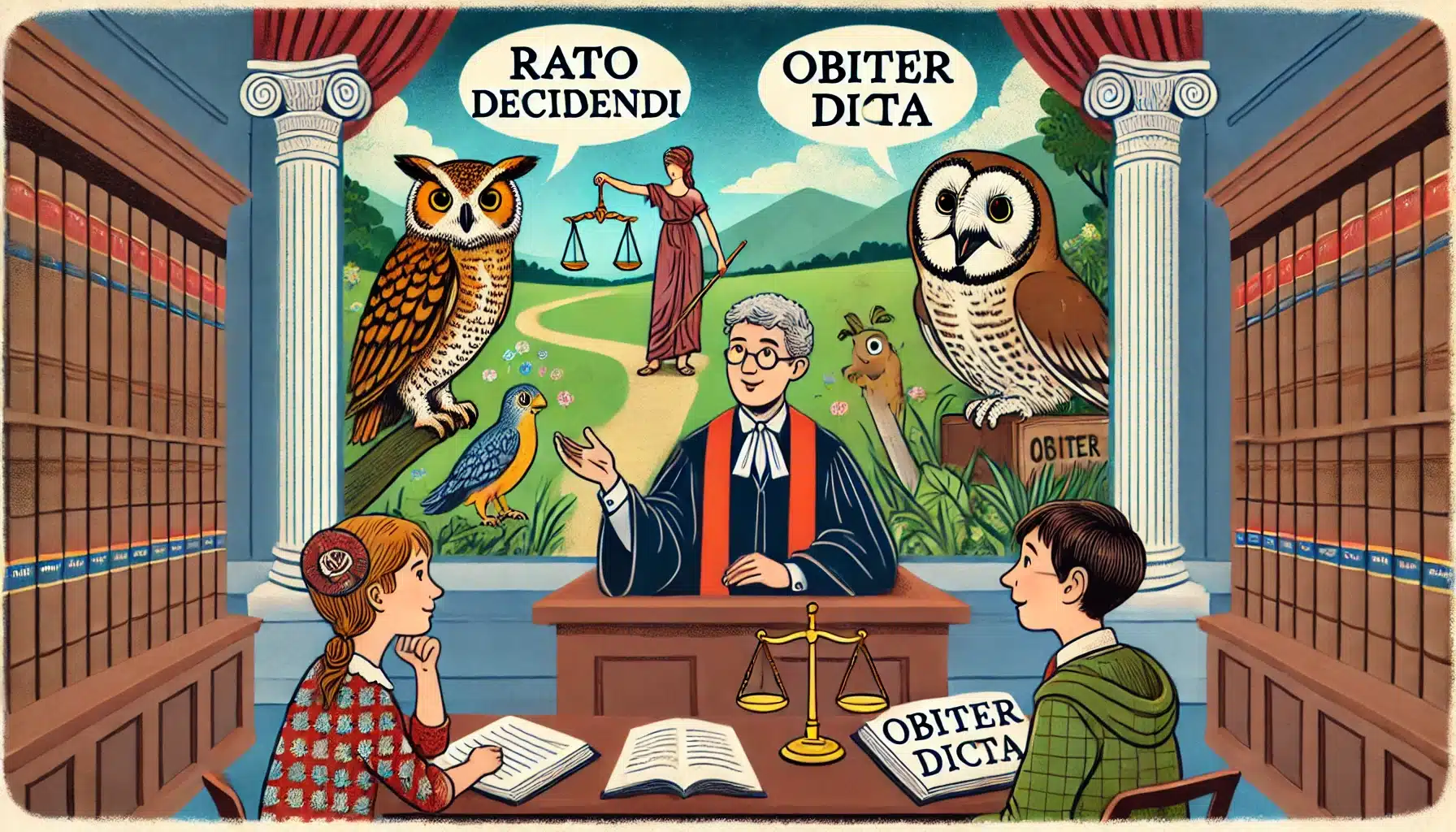
lex-o-pedia
Doctrine of Obiter Dicta and Ratio Decidendi
In legal judgments, the doctrine of obiter dicta refers to remarks made by a judge that are not essential to the decision’s outcome. These are persuasive but not binding in future cases. Conversely, ratio decidendi denotes the legal reasoning forming the basis of a court’s decision on the precise is

lex-o-pedia
Company Law: Understanding Debentures and Their Types
Debentures are long-term debt instruments issued by companies to borrow funds. They are unsecured, relying on the issuer’s creditworthiness. Types of debentures include convertible, which can be converted into equity shares; non-convertible, which cannot be converted; secured, backed by collateral;

lex-o-pedia
Merger and Demerger of a Company
Mergers involve the combination of two or more companies into a single entity, often to enhance competitive strength, achieve economies of scale, or expand market reach. De-mergers, on the other hand, entail a company splitting into two or more independent entities, usually to unlock shareholder val

lex-o-pedia
Types of Directors in a Company
In a company, directors can be categorized into executive and non-executive directors. Executive directors are actively involved in daily operations and decision-making, often holding key managerial roles. Non-executive directors, while not involved in day-to-day operations, provide oversight, strat

lex-o-pedia
Refusal By Bar To Defend Certain Accused
In “Refusal By Bar To Defend Certain Accused,” the legal profession grapples with ethical dilemmas when lawyers collectively refuse to defend certain individuals accused of heinous crimes. This refusal raises questions about the right to a fair trial, the duty of the legal profession to provide defe

lex-o-pedia
Strict Liability under Tort Law
This article explores the concept of strict liability within the framework of tort law. Strict liability imposes liability for harm caused by an ultra-hazardous activity, even in the absence of negligence. The seminal case of Rylands v. Fletcher will be examined to illustrate the key elements of thi

lex-o-pedia
To the Moon and Beyond: India’s Space Ambitions and the Legal Imperative
India’s Chandrayaan-3 mission achieved a historic soft landing on the moon’s south pole, marking a major milestone in global space exploration. This achievement underscores India’s expanding role in space, driven by private sector involvement and new policies. However, a comprehensive domestic space
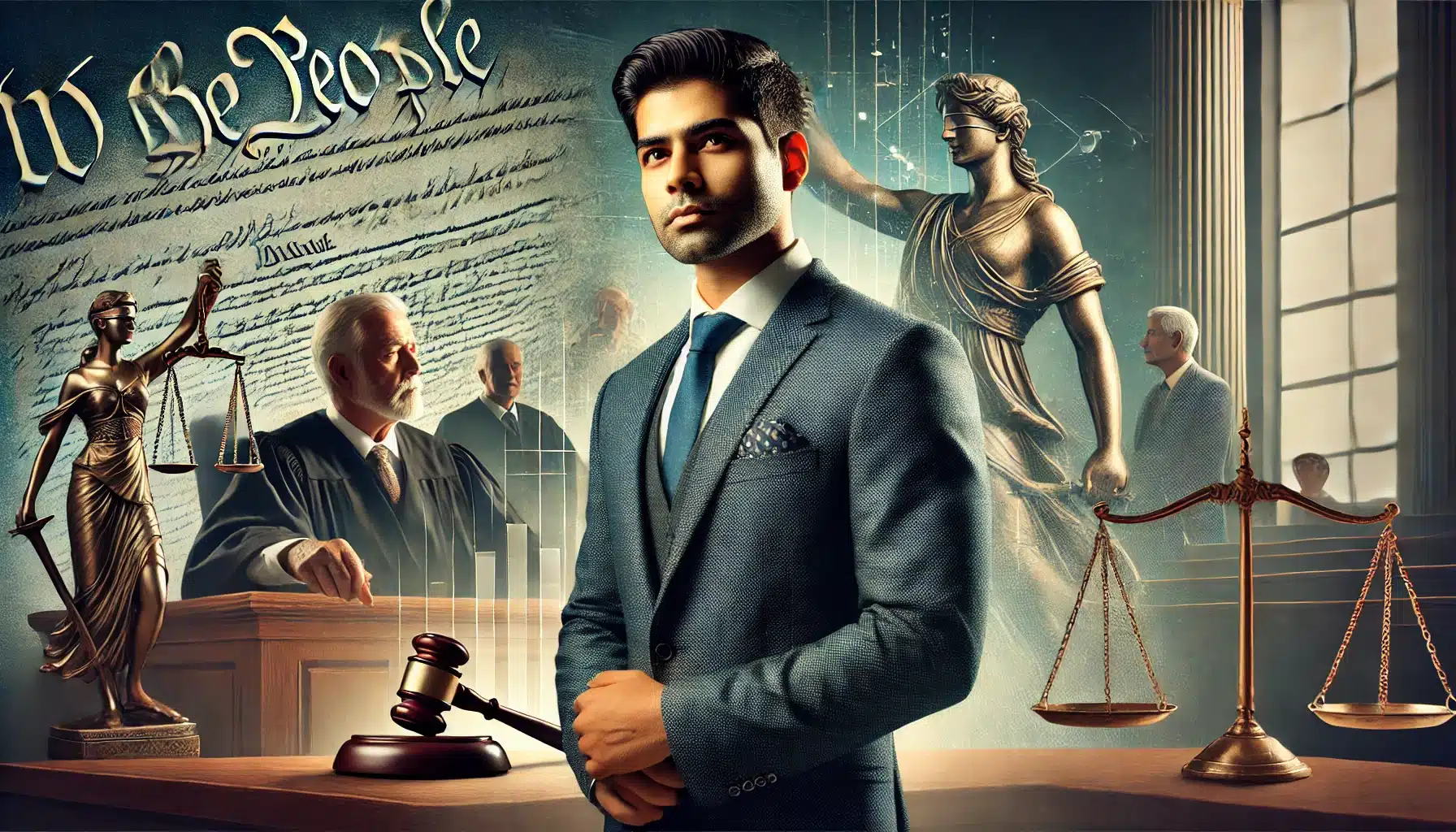
lex-o-pedia
Role Of Lawyers In Administration Of Justice
Lawyers play a crucial role in the administration of justice by ensuring the legal system functions effectively. They advocate for clients, uphold rights, and interpret laws. Lawyers provide legal advice, represent clients in court, and ensure fair trials. Their ethical duty is to promote justice an

lex-o-pedia
The Role of Public Prosecutors In The Administration of Criminal Justice System
In the Indian Criminal Justice System prosecution of accused in the Court done by the State.
As Crime is considered as the offence against the state and can imbalance the structure of
society as a well-established institution. For that purpose, State appoint the Public
Prosecutor and Additional Publ
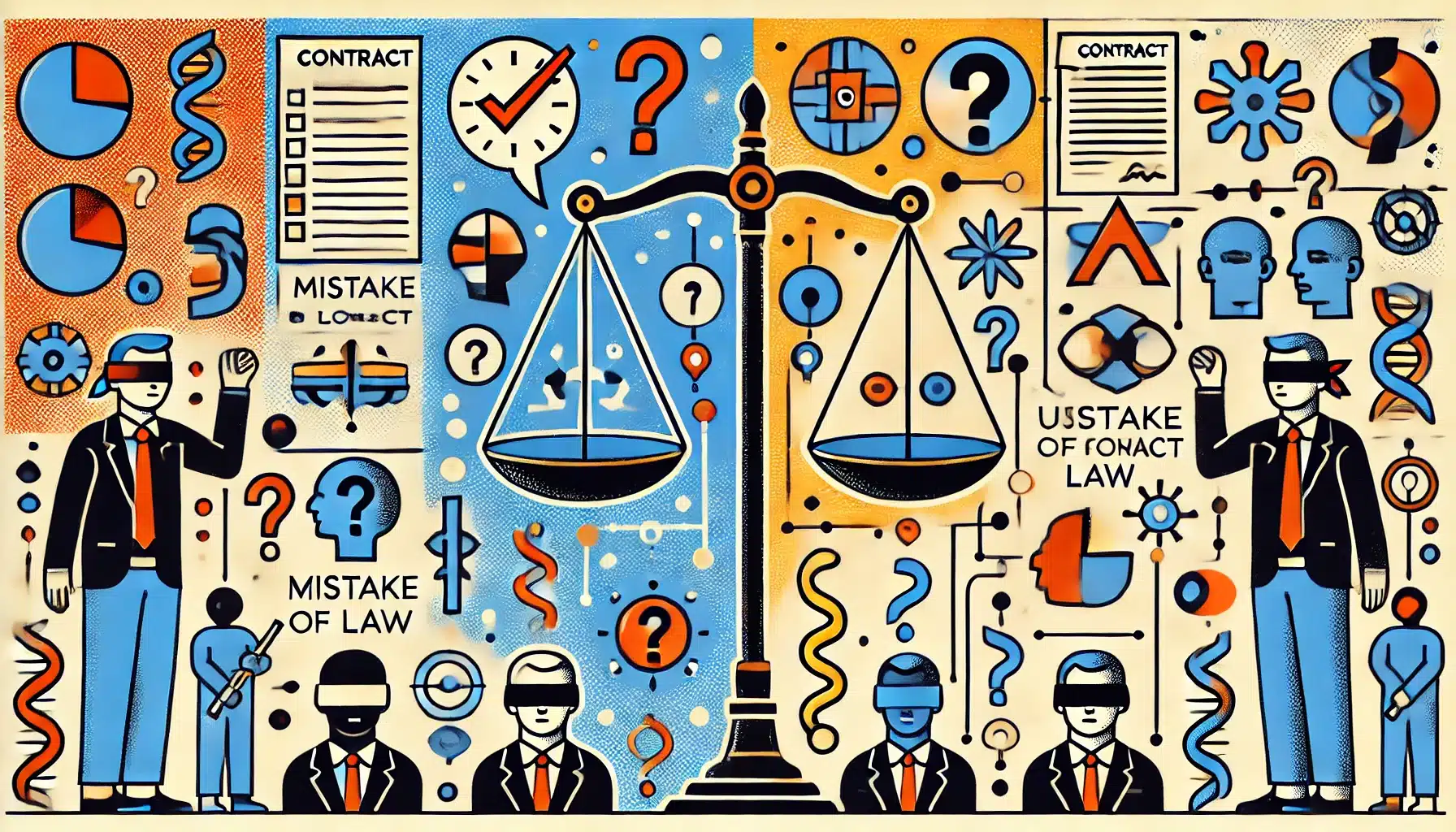
lex-o-pedia
Mistake under Indian Contract Act, 1872
Under the Indian Contract Act, 1872, a contract is voidable if it involves a mistake. Mistakes can be of fact or law. A mistake of fact occurs when both parties are mistaken about a fact essential to the agreement, rendering the contract void. A mistake of law, on the other hand, does not invalidate

lex-o-pedia
Understanding Dividend
A dividend is a portion of a company’s earnings distributed to its shareholders, usually in cash or additional shares. Companies pay dividends as a way to return profits to investors, often on a quarterly basis. The amount and frequency of dividends depend on the company’s profitability, financial h
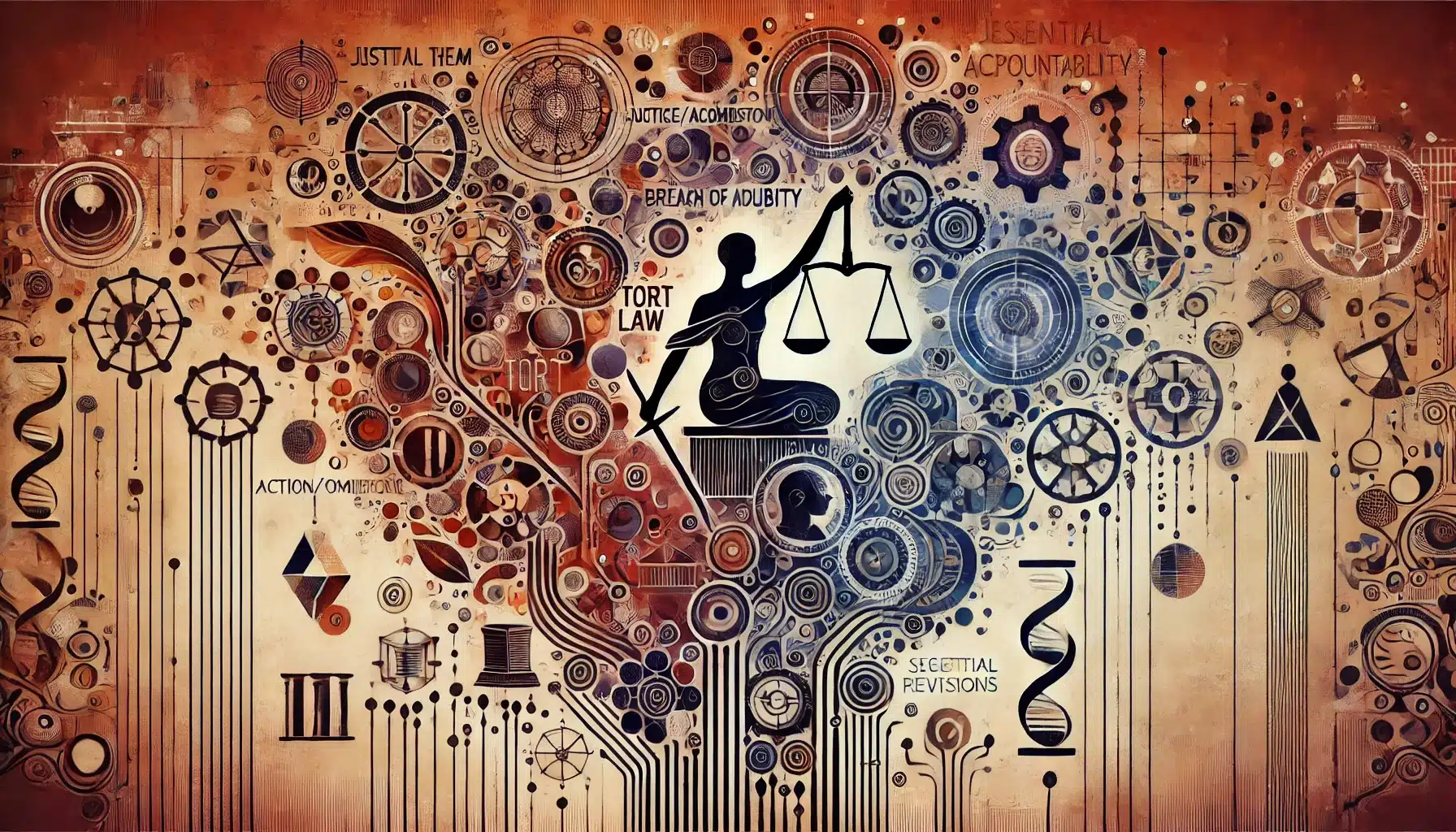
lex-o-pedia
Evolution of Tort Law in India
The evolution of tort law in India traces back to British colonial rule, adapting common law principles. Post-independence, Indian tort law continued to develop through judicial decisions, reflecting societal changes and incorporating concepts like negligence, strict liability, and vicarious liabili
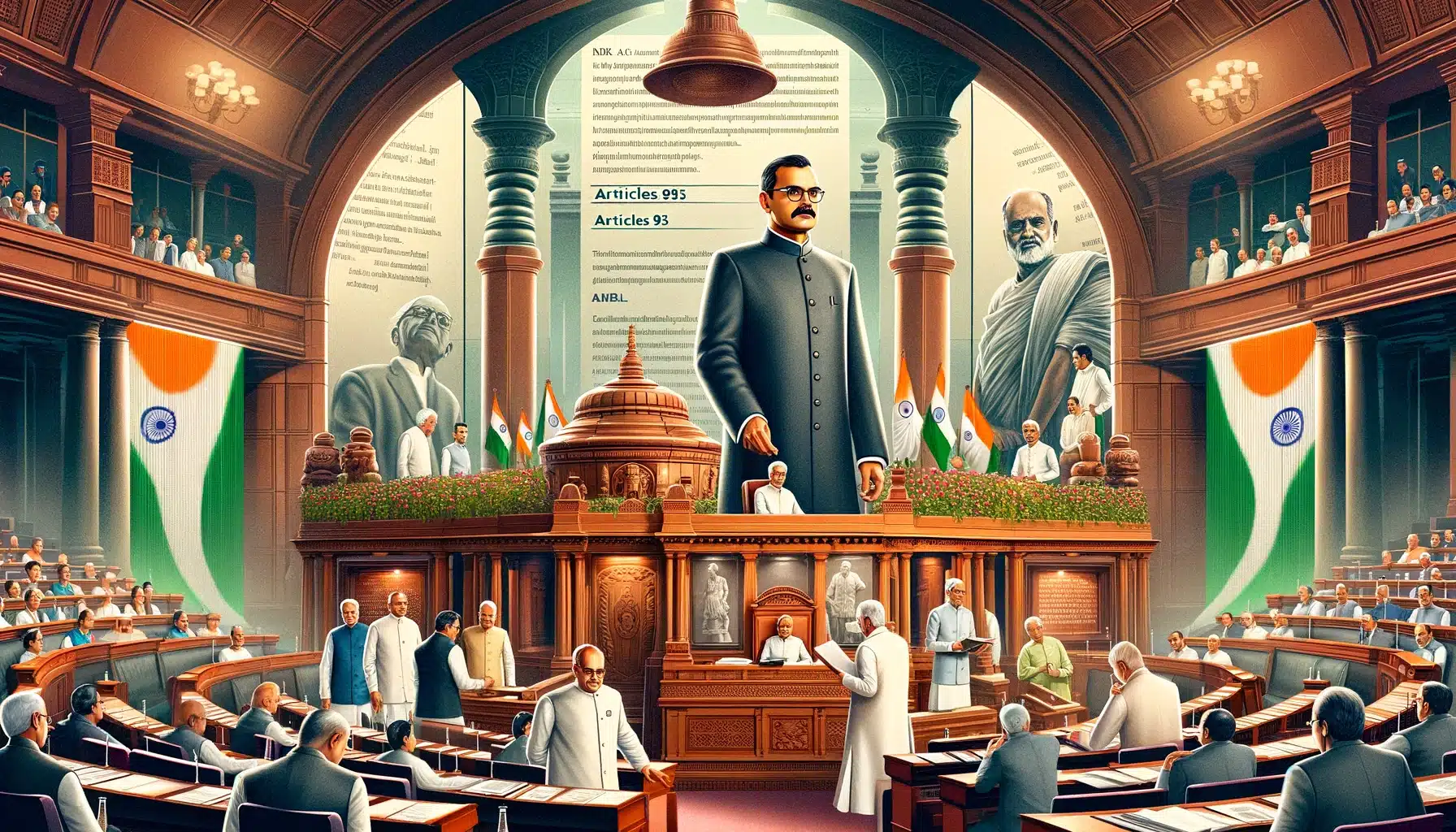
lex-o-pedia
Speaker of the Lok Sabha
The speaker has been assigned a wide range of tasks related to administrative, judicial, and regulatory concerns that fall under his or her purview. The House scrutinizes her/his activities, which have a significant impact on parliamentary processes.

